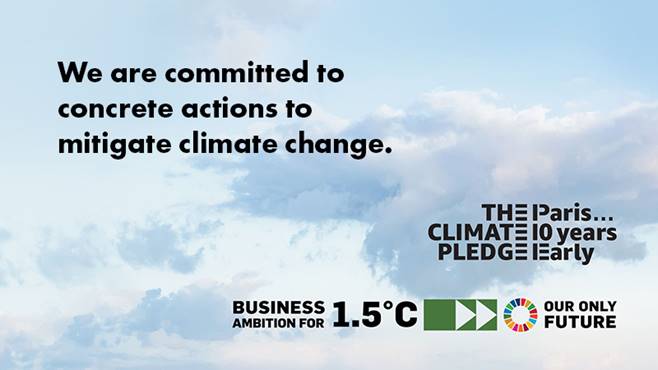The Intergovernmental Panel on Climate Change (IPCC) stresses that targets announced by different states so far are not enough to limit climate warming to 1.5°C by the end of the century. Greenhouse gas (GHG) emissions are growing in all sectors, and in the past decade, average GHG emissions were higher than ever before.
Limiting warming to 1.5°C or to no more than 2°C requires emission reduction measures in all sectors and major changes in energy systems. A transition in the energy sector will involve a substantial reduction in fossil fuel use, widespread electrification, improved energy efficiency, and use of alternative fuels, such as hydrogen.
Considering agriculture, forestry, and other land use, IPCC sees that the sector can provide large-scale emissions reductions, and remove and store carbon dioxide at scale. However, land cannot compensate for delayed emissions reductions in other sectors. Response options can benefit biodiversity, help us adapt to climate change, and secure livelihoods, food and water, and wood supplies.

Forestry addresses various global challenges
The report points out the following three principal reasons that make the Agriculture, Forest and Other Land Uses (AFOLU) sector unique when considering GHG emissions:
- In contrast to other sectors, these can provide raw materials to enable mitigation within other sectors, such as energy, industry or the built environment. The sector also reduces emissions in its own right, and removes meaningful quantities of carbon from the atmosphere relatively cheaply.
- The emissions profile of these sectors differs from others, with a greater proportion of non-CO2 gases (N2O and CH4). The impacts of mitigation efforts can vary according to which gases are targeted, as a result of the differing atmospheric lifetime of the gases and differing global temperature responses to the accumulation of the specific gases in the atmosphere.
- In addition to tackling climate change, mitigation measures in the agriculture, forest and other land use sectors have capacity, where appropriately implemented, to help address some critical, wider challenges, as well as contributing to climate change adaptation. Activities in these sectors are inextricably linked with some of the most serious challenges that are suggested to have ever faced humanity, such as large-scale biodiversity loss, environmental degradation and the associated consequences.
As these particular sectors concern land management and utilises a considerable portion of the Earth’s terrestrial area, the sector greatly influences soil, water and air quality, biological and social diversity, the provision of natural habitats, and ecosystem functioning, consequently impacting many of the UN’s Sustainable Development Goals (SDGs).
Paving the way for a future beyond fossils
We at UPM are committed to support the UN’s Sustainable Development Goals and have identified goals and respective targets where we can have the biggest positive impact through our operations, products and solutions, or where we aim to minimise our negative impact.
We are also committed to concrete, science-based actions to limit global temperature rise to 1.5°C. In 2021, we became the first forestry company to join The Climate Pledge, a group of sustainability leaders dedicated to meet the Paris Climate Agreement’s decarbonisation targets ten years in advance.

Our climate-related actions in forests are part of the UPM Forest Action programme that outlines an ambitious agenda for us to maximise the positive impact of our forestry operations by the end of the decade. As an industry first, the programme takes a holistic, global view on the impact of forestry, combining measures on five factors: climate, biodiversity, soil, water and social contribution.
Read more:
https://www.upm.com/responsibility/forests/forestaction/
https://www.upm.com/about-us/for-media/releases/2021/02/upm-joins-the-climate-pledge/
